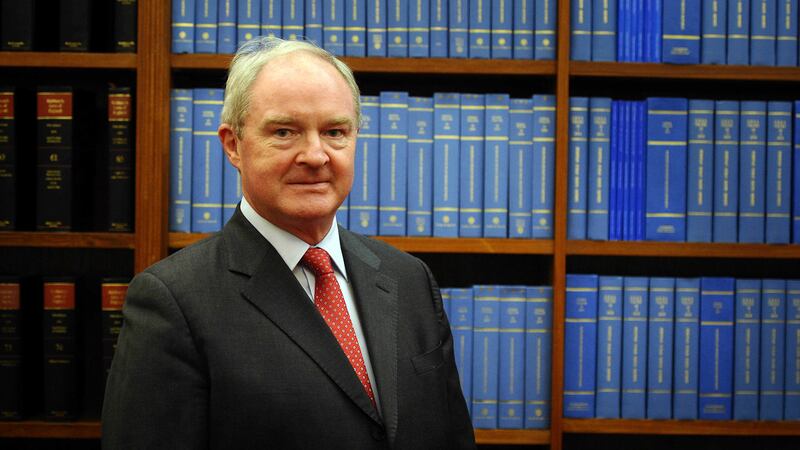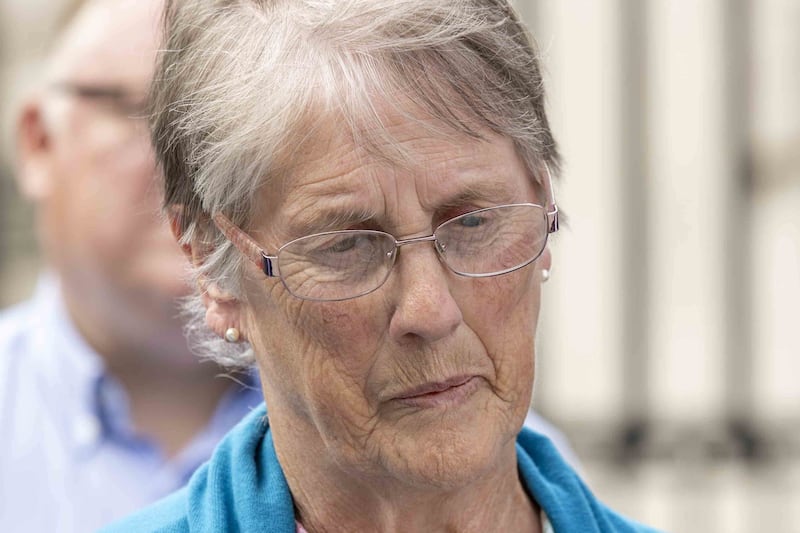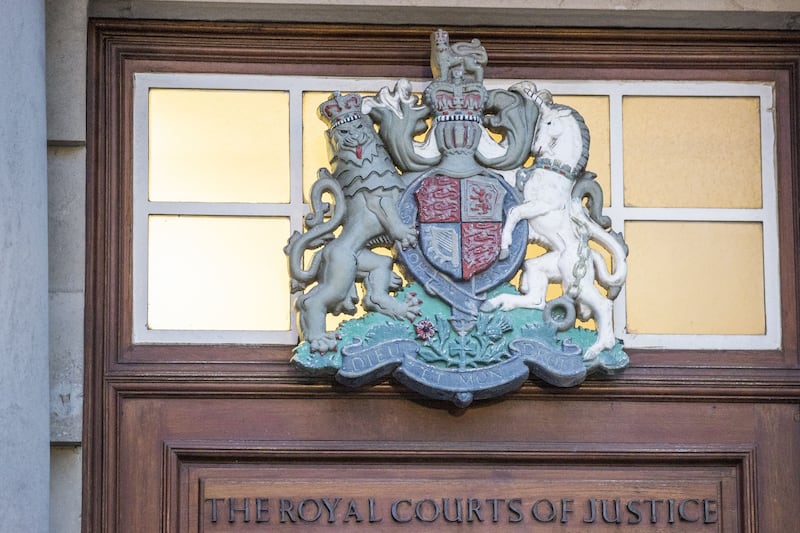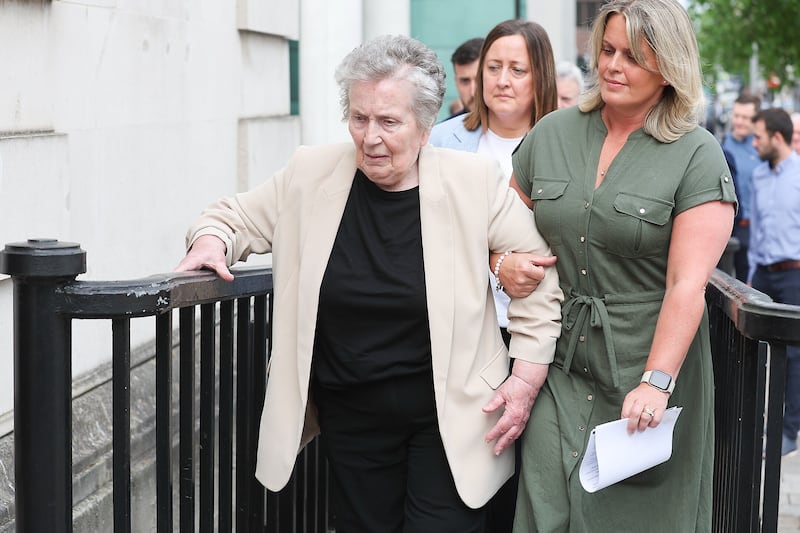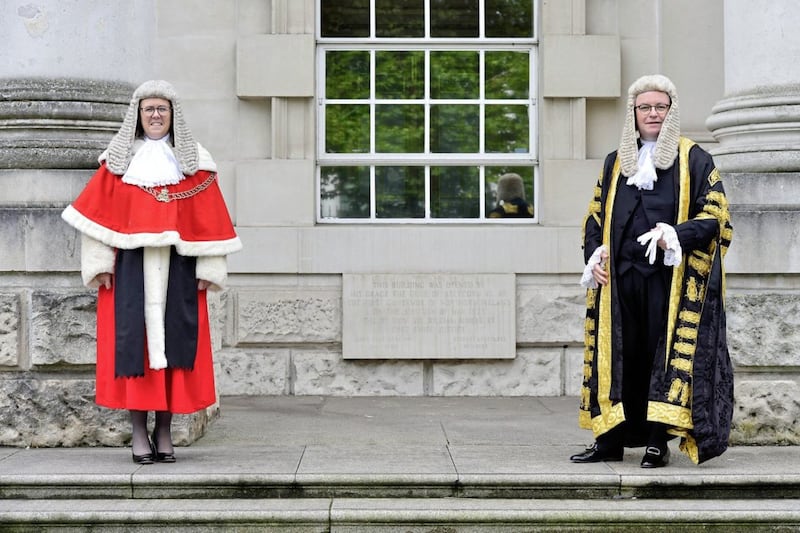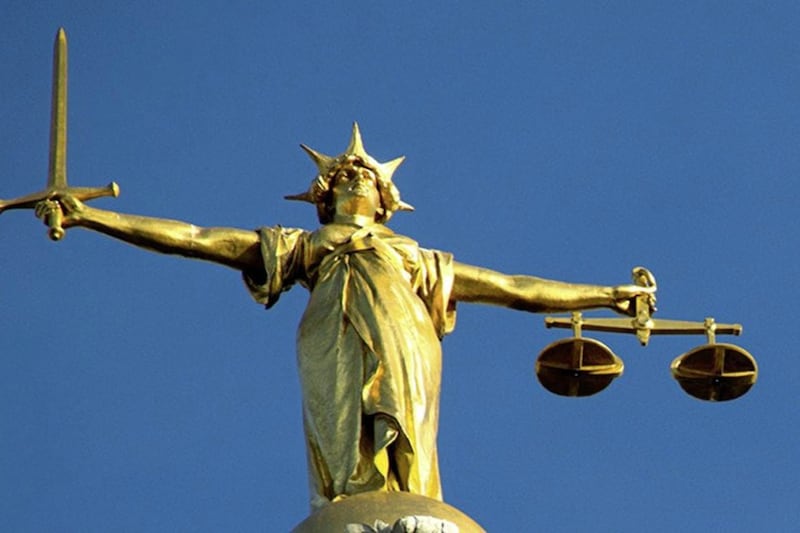LEGACY inquests into controversial killings in Northern Ireland could be completed within five years if the Government provides enough resources, the head of the judiciary said.
Extra investigators, lawyers and administrators need to be paid for and an electronic system created to manage vast amounts of documents, Lord Chief Justice Sir Declan Morgan added.
Dozens of the most highly-disputed cases from the Troubles are awaiting inquests decades after the killings took place.
They span allegations of security force misinformation to frame the IRA for bombings, state collusion in loyalist murders, inept police investigations, and IRA men shot dead by the army as part of a claimed policy of shooting to kill in which civilians were killed in the cross-fire.
Sir Declan said: "If we are given the necessary resources and obtain the full cooperation of the relevant statutory agencies I am confident that it should be possible to hear all the remaining legacy cases within five years."
Cases could begin being heard in September. Only 13 have been delivered in the past decade.
More than 50 stalled inquests relate to almost 100 deaths.
Sir Declan said: "I sincerely believe that if we are now in a position to make meaningful progress on this long-standing issue, and that if we do, it will provide a signal of hope to all victims and survivors that the remaining issues involved in dealing with the past can finally be resolved."
He recognised that different victims' families had different expectations from new inquests and acknowledged that many relatives were now dead.
"I feel a sense of deep regret that that has occurred.
"I hope that whenever the families see what we are doing, as distinct from what we are promising, that that would cause them to have confidence in our ability to deliver."
The family of a man allegedly killed by a secret military unit has said the Lord Chief Justice's intervention has given them hope.
Patricia McVeigh's father Patrick was shot in the back in Belfast by the Army's controversial undercover Military Reaction Force (MRF) unit in 1972, families believe.
They have alleged the force operated as a death squad in the bloodiest year of the Northern Ireland conflict. The Ministry of Defence has never acknowledged that the army squad was behind fatal shootings.
Ms McVeigh said: "I would like to think this is a very positive step, it's unprecedented. We will take hope from it."
She was among bereaved relatives who attended discussions with head of the judiciary Sir Declan Morgan in Belfast on Friday.
John Teggart, whose father Danny was one of ten people shot dead by paratroopers in Ballymurphy in west Belfast in 1971, also welcomed the initiative.
"This is a big step. It's a big step for families like ourselves. The Lord Chief Justice is leading by example."
Solicitor Padraig O Muirigh, who represents a number of the legacy case families, praised the senior judges.
"I think the Lord Chief Justice and his office are taking these matters very, very seriously," he said.
"We have had two weeks of hearings and Lord Justice Weir (who reviewed legacy cases on behalf of Sir Declan) sent a very, very positive signal and message of intent that these cases need to move. There shouldn't be any obstacles."
Stormont justice minister David Ford said he was committed to doing all he could to ensure that victims, survivors and families accessed the information, justice and services they deserved.
"My officials are working with the office of the Lord Chief Justice to agree the structure, resources and operational arrangements for a new legacy inquest unit based on the Lord Chief Justice's developing thinking.
"Officials have also been in discussion with Northern Ireland Office officials in the past week and I have had a meeting with the Secretary of State (Theresa Villiers) at which I pressed her to agree that the Department of Justice should have access to the funding made available under the Stormont House Agreement.
"I have made it clear that the justice system has not been resourced to bear the costs of dealing with the past."
A deal hammered out between Northern Ireland politicians and the British and the Irish governments before Christmas omitted a settlement on historical cases.
If a hold up between the British Government and Sinn Fein surrounding national security is resolved £30 million a year will be available for all matters touching on the conflict for five years, including a review leading to possible prosecutions.
Northern Ireland Secretary Theresa Villiers has pledged to consider releasing some money earmarked for the past early to boost the coroner's system.
A business plan for a dedicated legacy inquest unit is to be drawn up by the judiciary which will be submitted to Stormont.
An inquest into the death of Pearse Jordan, an IRA man shot dead by police in disputed circumstances in 1992, is due to start later this month.
Listed for April is a coronial investigation into the death of Belfast schoolboy Francis Rowntree, shot by a British soldier using a rubber bullet.
After Easter an inquest is due to be held into the Kingsmill deaths of 10 Protestant workmen gunned down over 40 years ago .
Many families have alleged collusion between state forces and loyalists in murder.
Sir Declan said he wanted to ensure relatives were given a more comprehensive picture of what happened during the period in question and why, and that the Coroners' Service could not be criticised for failing to recognise the wider issues.
He met relatives on Friday.
"You have been subjected to a series of disappointments and I do not want you to suffer another false dawn if that can be avoided."
